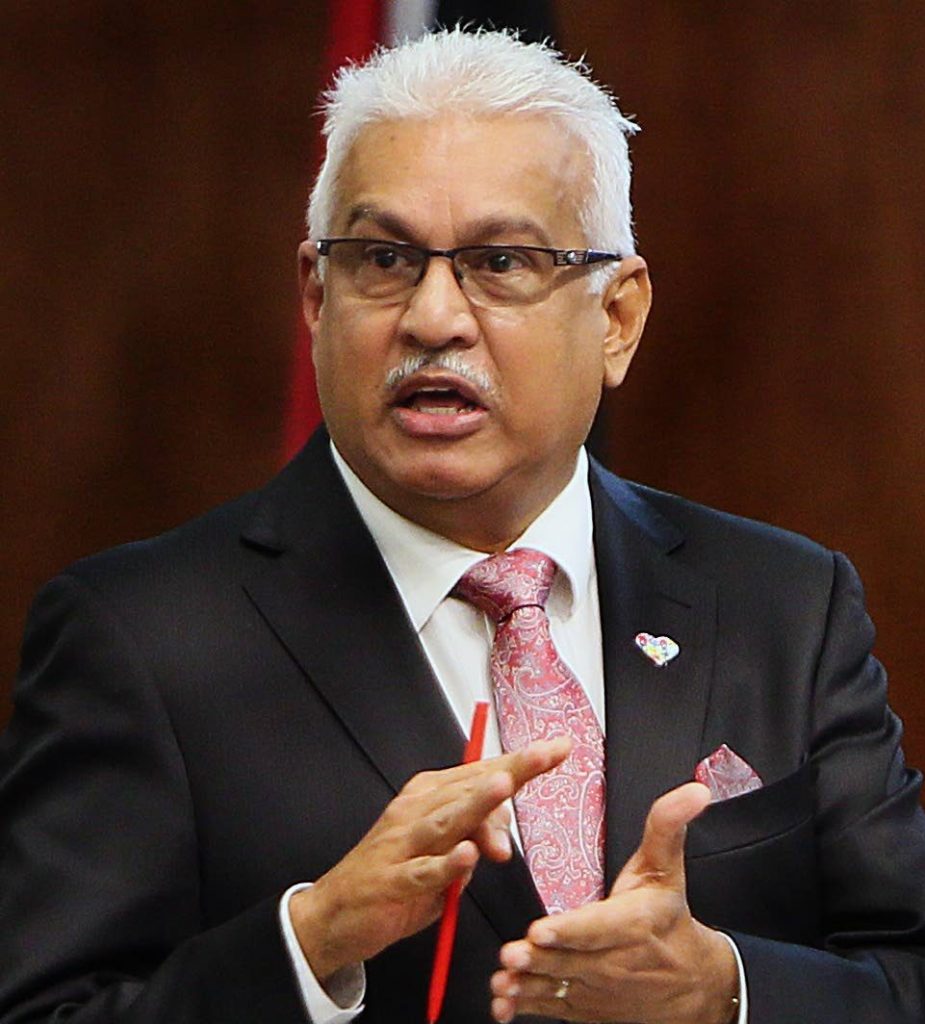Deyalsingh: Protect children from online predators

Parents need to monitor their children's use of the internet to protect them from online predators says Minister of Health Terrence Deyalsingh.
"This did not exist when we were children. The dark web poses a real threat. Most young people thing they are not vulnerable, they feel they have all the answers. Young people are actually naive when it comes to these things and it is up to parents to take a handle on it."
This as he made his contribution to the Sexual Offences (Amendment) Bill, 2019, which was debated in the Lower House, yesterday.
He said adolescents were the most vulnerable age at risk and were at high risk of being approached by online predators because that was when young people started to explore their sexuality.
He said predators were doing it in the privacy of their home with a camera, where no one could see them.
"When we went to a party long time everybody seeing you."
He said parents had to be armed with the tools to minimise the risks of their child becoming a victim to online predatory behaviour.
"If they are spending hours on the internet chances are they are starting to look at these sites. Go to your family computer and see if you are seeing porn.
"Start to see if your child is starting to receive an abnormal rise in phone calls either on their cell phones or the land line. It means the online predator is now making contact with the child on the phone.
"See if they are starting to receive mail or gifts all of a sudden. See if they start to withdraw from family gatherings and go into a shell. If they are displaying these characteristics, chances are they are being groomed. Also, see if they are using somebody else's account to mask or hide what they are doing on the internet."
Speaking about sexual abuse, Deyalsingh said women and children were the major category of victims of crimes of a sexual nature.
"Yes, men can be sexually abused but, by far, most perpetrators tend to be men and victims tend to be women and children.
"Is there a particular profile of a sexual predator? When we think of predators of children we think about dirty old men. That is a myth. Experts say most people who are abused do not go on themselves to be abusers, however, the majority, 75 per cent of sexual offenders, do have a history of maltreatment and abuse."
He said most victims of sex crimes were targeted by people known to them and not strangers. He said communities should be educated about sexual victimisation.
"The victims feel they have brought this upon themselves. They suffer from shame, guilt, self blame, post traumatic stress, anxiety and depression. We have to understand one thing, there is no definitive element to say who will be a predator. It could be anybody. The pathology of the sexual offender is definitive, it is not the dirty old man, but there are some traits."
Deyalsingh said sexual offenders tended to have social and interpersonal and intimacy deficits, victim empathy deficits, cognitive distortions, poor coping of self management skills and under-detected deviant sexual behaviour, adding that for a person who committed an offence there was a 70 per cent rate of re-offending.
Speaking on marital rape, he said under an old English common law in 1760, in Sir Matthew Hale's Historia Placitorum Coronæ, marital rape was impossible.
He quoted: "'The husband cannot be guilty of rape committed by himself upon his lawful wife for by their mutual matrimonial consent and contract the wife hath given herself up to her husband, consent which she cannot retract.' That was the law for 231 years until 1991 when the English law then recognised that marital rape is in fact a crime. That is what women had to live with for centuries and still exists in some cultures today.
"This legislation is to right the wrong against all women that has been perpetrated under this banner of law set by Sir Matthew Hale. We men should hang our heads in shame and say sorry to women. I say sorry to women for this."

Comments
"Deyalsingh: Protect children from online predators"